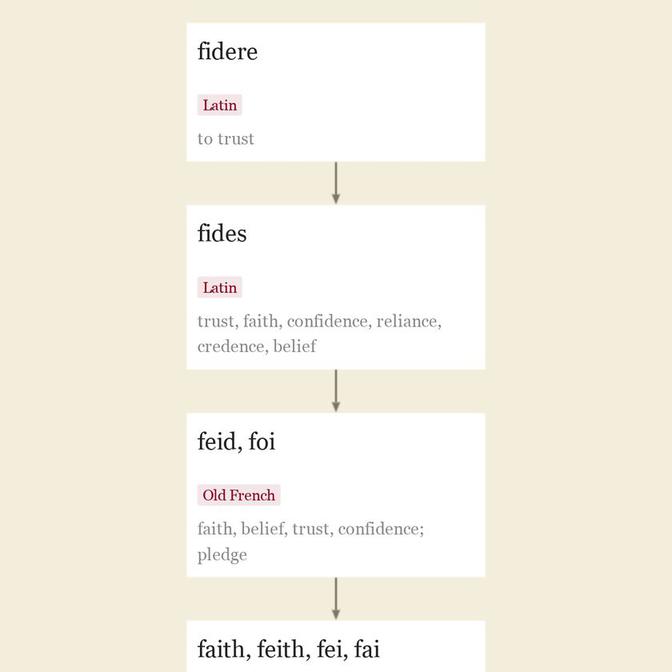interfaith adj.
1921, from inter- + faith.
Entries linking to interfaith
word-forming element used freely in English, "
A living prefix in English from 15c. and used with Germanic as well as Latinate words. Spelled entre- in French; most words borrowed into English in that form were re-spelled 16c. to conform with Latin except entertain, enterprise. In Latin, spelling shifted to intel- before -l-, hence intelligence, etc.

mid-13c., faith, feith, fei, fai "
From early 14c. as "
And faith is neither the submission of the reason, nor is it the acceptance, simply and absolutely upon testimony, of what reason cannot reach. Faith is: the being able to cleave to a power of goodness appealing to our higher and real self, not to our lower and apparent self. [Matthew Arnold, "Literature & Dogma," 1873]
From late 14c. as "
updated on October 24, 2012